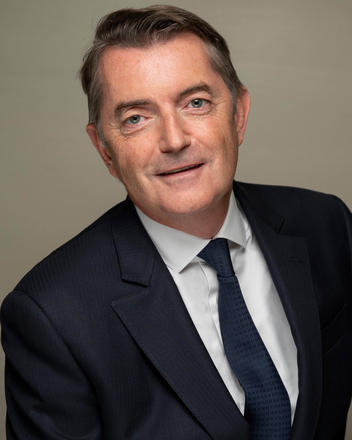La Banque Postale has put science behind its sustainability claims and, in October, it became the first European lender – and one of only three financial institutions of the world – to have its strategy validated by the Science Based Targets initiative (SBTi). The independent body led by four organisations, including the Carbon Disclosure Project, has found the decarbonisation strategy of the French state-owned bank to be compatible with the goal of keeping global warming to below 2 degrees Celsius.
The lender aims to complete that strategy by 2030 and turn its business into a net zero operation within the following decade. It has made available Scope 1, 2 and partial Scope 3 disclosures, it says.
As part of the same strategy, it has committed to exiting oil and gas financing by 2030 – not reducing its exposure but actually withdrawing from the sector completely, unless those fossil fuel companies show a satisfactory transition plan to green. It will stop providing services to any producer of fossil fuels, from the highest-polluting tar sands to more conventional oil fields, as well as to any company involved in fossil fuel infrastructure or even lobbying for the sector.
No other bank seems to have made such a clear commitment, and one, furthermore, that has been scrutinised and supported by not-for-profit groups Reclaim Finance, Friends of the Earth and Oxfam.
Although the public sector lender does not disclose the size of its loan book, its exposure to fossil fuel finance is considered smaller than that of its private sector peers. La Banque Postale is the 11th largest eurozone lender with €754bn in assets.
But the bank is proud to note that as a shareholder it voted against French national oil group Total’s climate plan in April as it found it lacking scientific evidence. With the assistance of other scientific organisations, La Banque Postale is also developing a tool to measure the impact of its activities from an environmental, social and ‘territorial’ point of view – the latter referring to its customer reach across France.
Sustainable Views spoke to CEO and chairman Philippe Heim and chief sustainability officer Adrienne Horel-Pagés at the end of October, soon after the announcement.
The interview has been edited for clarity and brevity.
Q: Why the need for a science-based accreditation?
Mr Heim: In France and in Europe, there is a growing scepticism around environmental, social and governance (ESG) matters – they are perceived as public relations slogans. To me, it was of paramount importance to have a scientific validation of our commitments. It was a way for us to clearly distinguish ourselves from our peers, to show that we are very serious and very ambitious about this. That's why we are very pleased after three years of intensive work and collaboration with SBTi to get this certification.
The news follows our decision earlier this year to become a purpose-driven company, as defined by the French law. We will vote on changing our raison d’être, our legal status, to reflect our commitment to ESG at our next annual meeting in March 2022. This is meaningful. If we are found not to comply with our stated purpose we could end up in court.
Q: The SBTi certification makes you stand out but will it actually give you a competitive advantage?
Mr Heim: I want to reiterate that we wanted to make a difference in this context of growing distrust towards ESG claims and to be very transparent about our methodology. Secondly, when I see around myself banks, all across Europe, making commitments for as far in the future as 2040 or 2050, and only on very specific oil and gas activities like arctic oil or other non-conventional types of oil – for us it was much too complex. So we decided clearly and simply: we will exit all fossil fuels – coals, oil, gas – by 2030.
Ms Horel-Pagés: We wanted to take the emotion out of the debate on sustainable finance, which is often still driven by personal convictions. Those are important too, but we want external and scientific validation of what we do.
Q: What do clients think of your policy?
Mr Heim: We need to be predictable and our policy needs to be well understood. When we explain that we will become a purpose-given company according to the French law, clients understand what is behind it. When we say we are compliant with ESG commitments, we can show a very clear policy about fossil fuels, and clients know how we will move in the next 10 years.
Q: So no more fossil fuel finance unless there’s a serious climate plan. But does financing those companies’ low-carbon transition still attract a reputational risk?
Ms Horel-Pagés: It is important to rely on scientific validation here too. We don't approve any transition plan just because it's called as such. We approve it when it's transparent, when there are clear and early milestones – a transition plan that says ‘okay, we'll talk again 2040’ is not a transition plan to us. You need to have milestones at least every five years and monitor them.
Mr Heim: When you look at the data from the International Energy Agency, you understand that we need to act decisively about fossil fuels. And there will be no decarbonisation without an active participation of financial institutions.








